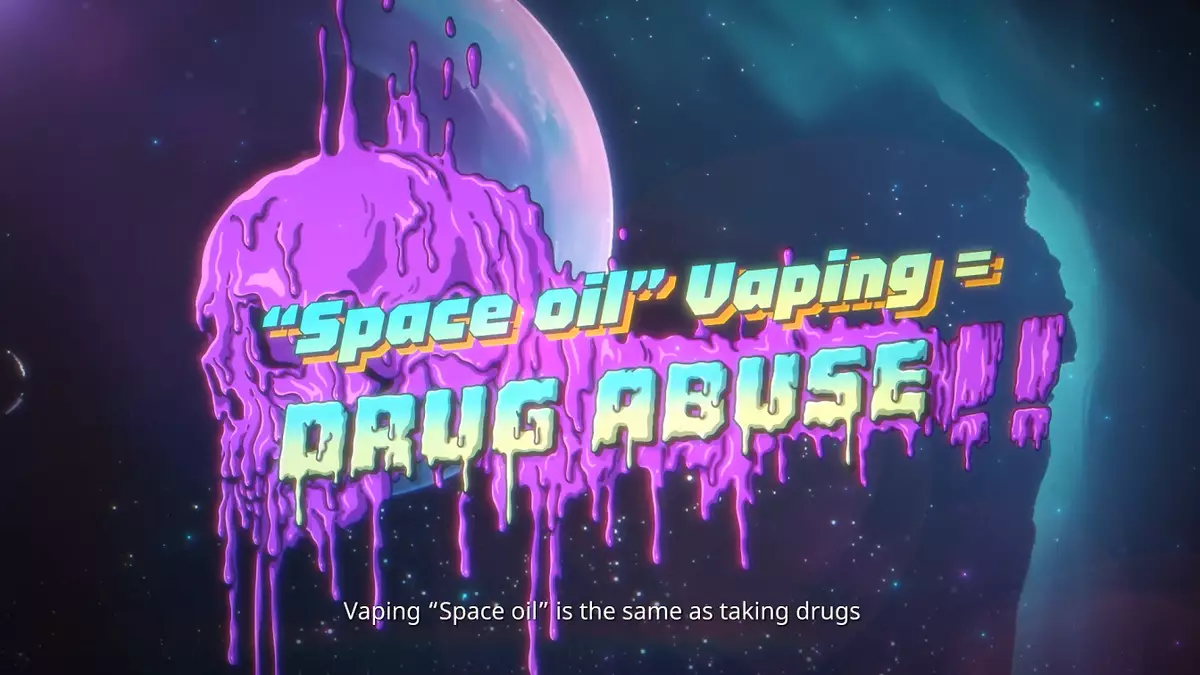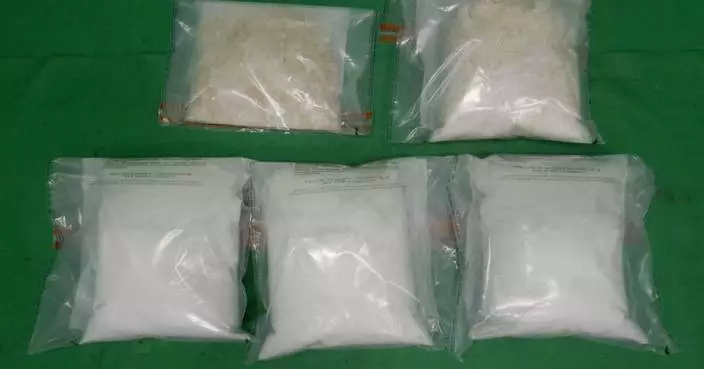Drug abuse and drug situation in Hong Kong in first half of 2024
The Action Committee Against Narcotics (ACAN) noted at its meeting today (September 20) the statistical figures of the Central Registry of Drug Abuse (CRDA) and other drug-related figures in the first half of 2024. ACAN noticed that the total number of reported drug abusers in the first half of 2024 was lower than that of 2023, while the number of reported young drug abusers aged under 21 increased. ACAN will closely monitor the situation in the remaining quarters of 2024, and will carry out its anti-drug work according to the latest situation.
Figures from the CRDA revealed that the total number of reported drug abusers in the first half of 2024 decreased by 8 per cent (from 3 279 to 3 025) when compared with that of 2023. The three most common types of drugs abused in the first half of 2024 were heroin, cocaine and methamphetamine (commonly known as "Ice"). Nevertheless, the number of reported young drug abusers aged under 21 increased from 394 to 452 when compared with the same period last year. Among these reported young drug abusers, nearly 75 of them abused "space oil". In this group, the most common type of drugs abused was cannabis, followed by cocaine. "Space oil" has become the third most common type of drugs abused for the first time.
The ACAN Chairman, Dr Donald Li, said "space oil" is a name drug dealers created in order to sugar-coat drugs with devious tactics. "Space oil" is a kind of liquid with harmful substances added illegally. Although there is no standard formula for "space oil", it usually contains an anaesthetic called etomidate, which can only be prescribed by a doctor. Etomidate is regulated as Part 1 poison according to the law.
Dr Li explained that, in addition to etomidate, "space oil" may be mixed with other drugs, including cannabis, "Ice" and ketamine (commonly known as "K"), etc. "Space oil" can cause serious physical and mental harm, including addiction, memory loss, seizure, unconsciousness, and even death. He added that etomidate and other drugs are strictly regulated under the existing laws. Members of the public must not defy these laws.
"It is scientifically proven that using e-cigarettes is harmful to one's health. Vaping 'space oil' through e-cigarettes is the same as taking drugs. I urge young people to be more vigilant against 'space oil', and they should never try this emerging drug out of curiosity. Otherwise, they will lose their health, their prospects, and even their precious lives. I also suggest that the Government should adopt measures for raising public awareness of 'space oil'."
The Narcotics Division (ND) of the Security Bureau is highly concerned about the emerging trend of "space oil" abuse. It has adopted the suggestions from ACAN and launched education and publicity initiatives targeting "space oil" to enhance the public's abilities to protect themselves against this emerging drug. In July this year, the Commissioner for Narcotics wrote to all primary schools and secondary schools in Hong Kong, reminding the education sector to stay alert to "space oil". At the end of last month, the ND co-organised an exchange session with the Hospital Authority and a social welfare service organisation to improve the capabilities of front-line social workers for providing services to "space oil" abusers. The ND is also stepping up promotion and released an animated video (www.youtube.com/watch?v=zHQVLgU3wAA) on the theme of "space oil" at the end of August to remind the public about the harmful effects caused by "space oil". Together with relevant government departments and social welfare service organisations, the ND will meet the education sector on October 8 to further raise teaching staff's awareness of "space oil". Furthermore, law enforcement agencies (LEAs) will step up patrols, including online surveillance, carry out intelligence-based law enforcement actions and continue to spare no effort to combat crimes relating to "space oil".
According to the statistical figures from the LEAs, the number of persons arrested for drug offences in the first half of 2024 dropped by 10 per cent (from 1 791 to 1 611) when compared with that of 2023. The number of young arrestees aged under 21 decreased by 32 per cent (from 179 to 122). Cannabis and cocaine were the main drugs involved in these arrests. According to the court cases concluded for the same period, the conviction rate of persons being prosecuted for drug offences was as high as nearly 90 per cent. As for young offenders aged under 21 who were sentenced to imprisonment for drug trafficking, more than half of them were sentenced to over five years in prison, and the longest period of imprisonment was nearly 22 years. The ND reminded members of the public, especially young people, not to take part in drug trafficking activities out of greed. Otherwise, there will be lifelong regrets. Young age is not a valid mitigating factor. Anyone who commits a drug offence is liable for serious criminal punishment. The maximum penalty for drug trafficking is life imprisonment and a fine of $5 million.
The statistical figures of the CRDA for the first half of 2024 are available on the website of the ND (www.nd.gov.hk/en/crda_main_charts_and_tables.html). The ND's website (www.nd.gov.hk) as well as its official accounts ("narcotics.divisionhk") on Facebook and Instagram also contain detailed information about drugs, including frequently asked questions about "space oil", cocaine and cannabis for the public's reference. If members of the public encounter any drug problems, they can send messages to 98 186 186 on instant messaging applications WhatsApp and WeChat, or call the 24-hour hotline 186 186 to seek information or assistance from professional social workers.
CHP reminds public on precautions against cold weather
The Centre for Health Protection (CHP) of the Department of Health (DH) today (December 22) reminded the public, particularly the elderly and people with chronic illnesses, to adopt appropriate measures to protect their health in view of the cold weather.
A spokesman for the CHP said that cold weather can easily trigger or exacerbate diseases, especially among the elderly and persons suffering from heart disease, respiratory illnesses or other chronic illnesses.
"Elderly people have less insulating fat beneath their skin to keep them warm, and their body temperature control mechanisms may be weaker. Their body may not be able to appropriately respond to thecold weather," the spokesman said.
Some senior persons may have decreased mobility, which can impair their ability to generate and conserve body heat. Chronic illnesses, such as hypertension, diabetes and endocrine disorders, may undermine the health of elderly people and lower their metabolic rate, subsequently causing their body to generate less heat. Persons with chronic illnesses, such as chronic respiratory illnesses or heart disease, are vulnerable to disease aggravation due to cold weather.
The CHP reminded the public, in particular the elderly and persons with chronic illnesses, to adopt the following preventive measures:
Take note of the weather forecast. Wear warm clothing, including hats, scarves, gloves and socks, accordingly;
Consume sufficient food to ensure adequate calorie intake;
Perform regular exercise to facilitate blood circulation and heat production;
Stay in a warm environment and avoid prolonged outdoor exposure;
Use heaters with care and maintain adequate indoor ventilation; and
Seek medical advice if feeling unwell.
In addition, the public should avoid alcoholic beverages.
"Drinking alcohol cannot keep you warm. Alcohol accelerates the loss of body heat through dilated blood vessels, resulting in chilling instead," the spokesman said.
"Parents should ensure that babies are sufficiently warm, but it is also important to keep babies relatively lightly clothed to avoid overheating them," the spokesman added.
Parents should observe the following safety measures when putting their children to bed:
Keep the room well ventilated and at a comfortable temperature;
Always place babies on their backs to sleep. Leave their heads, faces and arms uncovered during sleep;
Babies do not need pillows. Place babies on a firm and well-fitted mattress to sleep. Avoid soft objects, pillows and loose bedding;
Let babies sleep in a cot placed near their parents' bed; and
Maintain a smoke-free environment.
In addition, many respiratory pathogens, including influenza and SARS-CoV-2, may have increasing activity and community transmission during winter. Seasonal influenza vaccination is recommended for all persons aged 6 months or above, except those with known contraindications. Persons at higher risk of getting influenza and its complications, including the elderly and children, should receive seasonal influenza vaccinations early. Please see details of the vaccination schemes on theCHP's website.
A person who gets influenza and COVID-19 at the same time may be more seriously ill and would have a higher risk of death. It is important for elderly persons, especially those residing in residential care homes, to receive both a seasonal influenza vaccination and a COVID-19 vaccination. They should also receive an additional booster against COVID-19 according to recommendations as soon as possible. The public should also maintain good personal and environmental hygiene against respiratory illnesses and note the following:
Surgical masks can prevent transmission of respiratory viruses from ill persons. It is essential for persons who are symptomatic (even if having mild symptoms) to wear a surgical mask;
Wear a surgical mask when taking public transport or staying in crowded places. It is important to wear a mask properly, including performing hand hygiene before wearing and after removing a mask;
Avoid touching one's eyes, mouth and nose;
Wash hands with liquid soap and water properly whenever possibly contaminated;
When hands are not visibly soiled, clean them with 70 to 80 per cent alcohol-based handrub;
Cover the mouth and nose with tissue paper when sneezing or coughing. Dispose of soiled tissue paper properly into a lidded rubbish bin and wash hands thoroughly afterwards;
Maintain good indoor ventilation;
When having respiratory symptoms, wear a surgical mask, refrain from work or attending classes at school, avoid going to crowded places and seek medical advice promptly; and
Maintain a balanced diet, exercise regularly, take adequate rest, do not smoke and avoid overstress.
Food-borne diseases, particularly those linked to hotpot cuisine, are also common in cold weather. The following preventive measures should be taken:
Wash hands before handling and consuming food;
Do not patronise unlicensed vendors or those with poor hygienic standards while selecting food;
Wash and cook all food thoroughly;
Vegetables should be washed thoroughly in clean running water before cooking and consumption. When appropriate, scrub vegetables with hard surfaces with a clean brush to remove dirt and substances, including pesticide residues and contaminants, from surfaces and crevices;
Shrimps should be fully cooked until the shells turn red and the flesh turns white and opaque;
For shellfish such as scallops and geoduck, scrub the shells thoroughly and remove internal organs;
Do not eat any undercooked freshwater aquatic products. To ensure that the food is thoroughly cooked, the centre of the food should reach a temperature of at least 75 degrees Celsius so as to destroy pathogen;
Most hotpot ingredients should be stored in a refrigerator at 4 degrees C or below, while frozen food should be stored in a freezer at -18 degrees C or below;
Never use raw eggs as a dipping sauce for hotpot; and
Use different sets of chopsticks to handle raw and cooked food to avoid cross-contamination.
In addition, when using fuel-burning appliances, especially in indoor areas, the public should ensure adequate ventilation to avoid harmful exposure to carbon monoxide (CO) and prevent CO poisoning.
For more health information, the public may call the DH's Health Education Infoline (2833 0111) or visit theCHP's websiteandFacebook Fanpage.
The public may also call Dial-a-Weather (1878 200) or visit thewebsite of the Hong Kong Observatoryfor the latest weather information and forecasts, or itspage on Weather Information for Senior Citizens.








